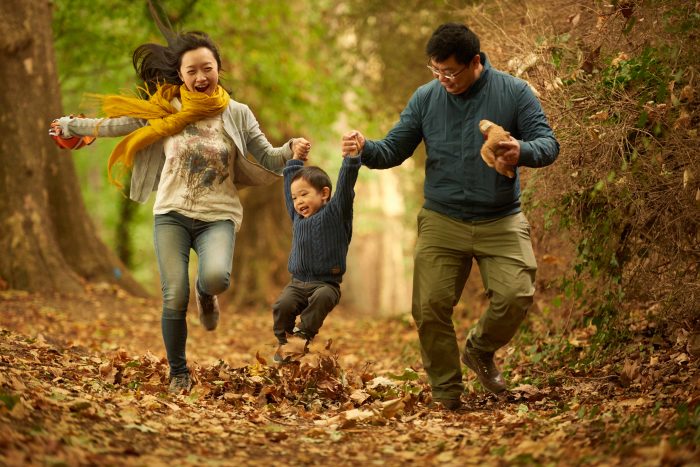It comes as no surprise that most little ones love playing outdoors – but did you know just how good it is for them? The BBC’s “Tiny happy people-” team spoke to the experts about the benefits of nature and the outdoors for your child’s mental and physical development.
Learning from adversity
It might feel natural to want to control everything to keep your little ones safe during outdoor play, but a little bit of unpredictability can actually be a good thing. Dr Sandi Mann, Senior Psychology Lecturer at the University of Central Lancashire, says that the outdoors can provide many stimulating activities that are good for development – perhaps not in the ways you might expect.
“They can learn to cope with adversity, for example when things are less comfortable than at home,” says Sandi.
This could include things such as bad weather, walking through mud and so on – finding solutions or ways to cope will teach them to adapt to a challenging situation. You might find that gently pushing themselves to walk, run or climb that little bit more helps encourage mental strength and the ability to overcome challenges. After all, you can’t control the outdoors.
We often think of new life in springtime, as we see plants flowering and baby animals like ducklings and lambs appearing. But getting outdoors and watching nature can be a good opportunity to prepare pre-schoolers for big changes and challenges that might happen later in life. For example, learning about life cycles in pond life or plants could help teach your little one about death. It might sound a bit dark – but that’s all part of nature too!
Shout about it!
It’s a given that the outdoors offers more space to run, jump, climb, play and get out some restless energy.
We all know that fresh air is good for you, but a few minutes of active play outside supports children’s co-ordination, balance and stamina as well as being really good fun. Psychologist Dr Claire Halsey says being active and getting a change of environment each day is vital for both children and adults:
“These things lift mood, improve physical health and co-ordination and build relationships and social skills,” says Claire. “Even brief periods being active help well-being for adults and children, so it’s okay to start small and build up to more outdoor play.”
She suggests playing team games and sports as children grow. These are ideal for learning to take turns, be a good winner or a gracious loser, and get into the team spirit by co-operating with others.
We’re sure you’re aware as parents that little ones can also shout and make noise! Providing this freedom that’s usually restricted during indoor play can be great for a child’s self-expression and emotional health. Claire says you might also see some longer-term benefits, as burning off that energy is vital to help stave off restlessness at home and improve sleep.
Be mindful
After lots of fun physical play, slowing down to enjoy the scenery might benefit children too.
“Even a few minutes outside, especially if it’s a green environment like a back yard, park or visit to the local sports pitch is known to improve mood and lift children’s spirits,” says Claire. Claire also says that being in a green environment may help boost the immune system.
Children are natural investigators and love to explore, and interacting with natural environments allows them to learn by experimenting. Sandi reminds us that outdoor play could also be important for bonding: “Children love sharing discoveries, pointing things out, explaining things and having things explained.”
Nature presents many chances for you to role model, teach and share. Even the process of getting ready to go outdoors or walking to the park are opportunities to interact with your little one.
“Having the interest and attention of such an important adult means a lot to each child,” says Claire. “Playing games and having a walk or chat in the great outdoors builds those relationships and can have a calming and positive effect on grown-ups and little ones alike.”
Encouraging children to be inquisitive makes them great learners and can help them gain a respect and appreciation for nature. Why not encourage them to ask some big questions about how things work while you show them the outdoors?
What can you do to get your children out in nature?
You might want to think up some exciting games or tasks to make your walk or playtime more fun and encourage learning. Here are some suggestions to get you started:
- Set a challenge to collect things in nature, such as leaves, sticks or stones
- Run to reach the nearest tree, post box or bench
- Find or spot things as you walk (e.g. objects beginning with a certain letter)
- Draw, trace or make crayon rubbings of objects and signs
- Take photos of your discoveries
- Go on a listening walk, concentrating on the sounds of things as you explore, not just the things you can see
- And play ball games, of course!
Source: we have found this article on the BBC’s tiny happy people site.

